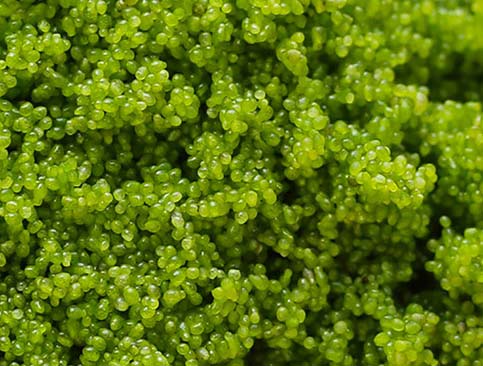Thai Researchers Discover That Wolffia Globosa Extracts Can Reduce Inflammation and Boost Antioxidant Defenses
Nikhil Prasad Fact checked by:Thailand Medical News Team Oct 16, 2025 3 months, 4 weeks, 21 hours, 48 minutes ago
Medical News: Researchers from Chiang Mai University and Naresuan University have discovered that Wolffia globosa, a tiny aquatic plant native to Thailand, could become a powerful source of sustainable nutrition and natural anti-inflammatory compounds. The study explored protein extracts from dried Wolffia globosa and their effects on antioxidant activity and inflammation at the cellular level. This
Medical News report highlights how the plant, known locally as “Phum” or “Khai Nam,” could revolutionize the global search for eco-friendly, health-promoting food ingredients.
 Thai Researchers Discover That Wolffia Globosa Extracts Can Reduce Inflammation and
Thai Researchers Discover That Wolffia Globosa Extracts Can Reduce Inflammation and
Boost Antioxidant Defenses
A Tiny Plant with Mighty Nutritional Value
Known as the world’s smallest flowering plant, Wolffia globosa grows rapidly and thrives in freshwater ponds across northern Thailand. The research team from the Department of Pharmaceutical Science, Faculty of Pharmacy, Chiang Mai University, together with scientists from the Faculty of Allied Health Sciences at Naresuan University, found that the dried plant is rich in protein and essential amino acids such as lysine, leucine, and phenylalanine. The plant also met all Thai safety standards for heavy metal content, confirming it is safe for human consumption.
Through a series of laboratory tests, researchers discovered that the highest protein yield came from extracts precipitated at pH 3, while the greatest antioxidant properties appeared in the pH 5 supernatant. These extracts exhibited potent free radical scavenging and ferric-reducing abilities—two key indicators of antioxidant strength. The high phenolic content in the plant correlated closely with these antioxidant effects, suggesting that Wolffia globosa proteins and phenolics work together to protect cells from oxidative damage.
Anti-Inflammatory Effects Comparable to Pharmaceutical Drugs
The research went further by examining how Wolffia globosa protein extracts affect inflammation in THP-1 macrophage cells, a standard model for human immune response. When exposed to lipopolysaccharide (LPS), a molecule that triggers inflammation, cells typically release large amounts of inflammatory markers such as interleukin-1β (IL-1β) and interleukin-6 (IL-6). However, treatment with Wolffia globosa protein extracts significantly reduced IL-1β levels and suppressed key inflammation-related proteins, including phospho-NF-κB, phospho-IκB-α, and COX-2. This pattern mirrors the anti-inflammatory action of dexamethasone, a widely used steroid drug, but without any observed toxicity to cells. These findings indicate that compounds in the plant can calm inflammatory responses naturally by blocking critical molecular pathways.
A Safe and Sustainable Protein Source
Importantly, both supernatant and precipitate extracts showed no cytotoxicity even at high concentrations, confirming that the plant’s bioactive compoun
ds are safe. The results reinforce the potential of Wolffia globosa as an alternative protein source for vegetarians and as a key ingredient in the development of functional foods and nutraceuticals. Its fast growth, minimal water requirements, and environmental benefits make it an attractive candidate for sustainable agriculture in Asia and beyond.
Future Implications for Health and Nutrition
The researchers plan to continue investigating Wolffia globosa in animal models to confirm its biological benefits and identify the exact bioactive molecules responsible for its effects. Future studies will explore how the plant’s proteins and phenolic compounds could be integrated into dietary supplements to combat chronic inflammation and oxidative stress, two factors linked to aging and many modern diseases.
In conclusion, this pioneering work positions Wolffia globosa as more than just a local delicacy—it could soon emerge as a global superfood that supports both human health and environmental sustainability.
The study findings were published in the peer reviewed journal: Molecules.
https://www.mdpi.com/1420-3049/30/20/4092
For the latest on Herbs and Phytochemicals, keep on logging to Thailand
Medical News.
Read Also:
https://www.thailandmedical.news/articles/herbs-and-phytochemicals
https://www.thailandmedical.news/articles/thailand-medical
